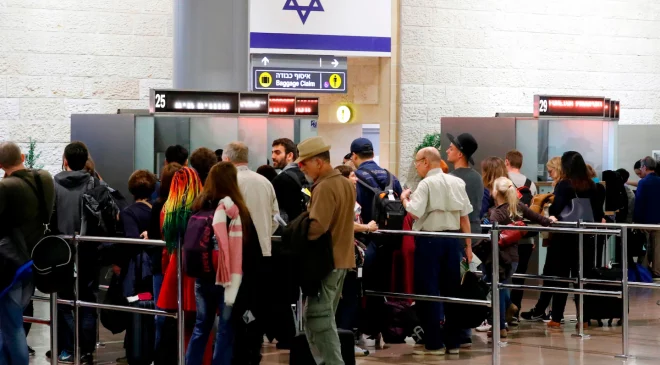
On September 27, the US government granted Israel entry into its visa-waiver program, allowing Israeli citizens visa-free entry to America. To obtain this long-sought political prize, the government of Prime Minister Benjamin Netanyahu in July eased its discrimination against US nationals who are of Palestinian or, more generally, Arab or Muslim origin, when they travel to Israel and the Occupied Palestinian Territory.Israel has not eliminated all discrimination among US nationals, prompting 15 US senators to declare earlier this month that Israel had yet to satisfy the conditions for entry into the programme, and the Arab American Anti-Discrimination Committee to file a suit to halt its implementation. For example, Israel still prohibits Palestinian-Americans who also have West Bank IDs from crossing checkpoints into Israel and Occupied East Jerusalem in a vehicle.
European citizens of Palestinian or other Arab descent, like their American counterparts, have for decades faced two basic types of discrimination when entering Israel or the occupied territory. Israel treats those EU nationals whom it has also registered as residents of the occupied West Bank or Gaza Strip like other Palestinian residents of these areas: they are for the most part prohibited from using Ben Gurion Airport and so must enter the West Bank via land crossings from Jordan, or Gaza via the land crossing from Egypt.
Like all other Palestinians residing in these areas – but not Jewish settlers in the occupied West Bank or the foreign visitors they are hosting – these European “dual nationals” are barred from crossing into Israel and occupied East Jerusalem without a difficult-to-obtain permit. These onerous and arbitrary restrictions on movement are one of the inhumane practices that make up Israel’s crime against humanity of apartheid and persecution against millions of Palestinians.
The second type of discrimination is not codified in law but is almost as flagrant. It involves Israeli border authorities’ heightened scrutiny of foreigners with last names that are recognisably Palestinian, Arab, Iranian, or Muslim. They are more likely than their compatriots to undergo lengthy and sometimes abusive interrogations and searches and more likely to be denied entry.
Although there are no readily available statistics regarding entry to Israel, the discrimination is so rampant that the websites of many European governments caution their nationals to expect it.
In a 2022 internal annual report, Jerusalem- and Ramallah-based EU diplomats recommended that the EU “consider a response to Israeli discriminatory visa practices restricting freedom of movement of EU citizens, including access to Jerusalem.” On-the-ground diplomats have been making this recommendation for years.
But EU officials in Brussels have not once, to my knowledge, publicly suggested that Israel’s routinely discriminatory practices against categories of European citizens amounts to a subversion of the reciprocity principle that undergirds the agreement. EU officials have apparently chosen to define “reciprocity” narrowly to mean that each side imposes no formal visa requirement.
The US and EU should of course demand much more of Israel, including to respect the right of all Palestinians to travel between Gaza and the West Bank and take steps to dismantle apartheid.
To combat discrimination against one’s own nationals, it may be harder, politically, to suspend or impose conditions on a visa waiver program already in place, than it is to set benchmarks for admitting a country, as the US did, but the recent US experience shows what the EU could and should at minimum get for its citizens, if it were finally willing to use the leverage that the coveted visa-free entry into 27 member states gives it.
